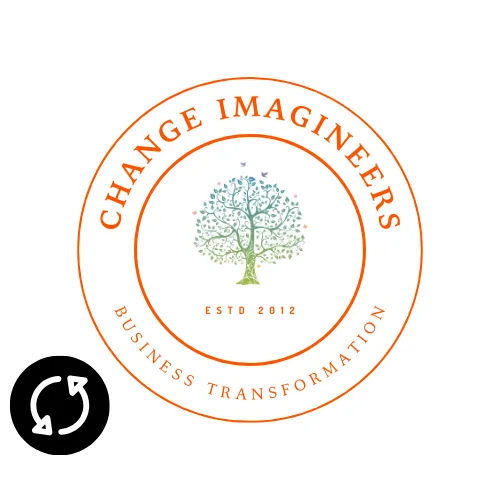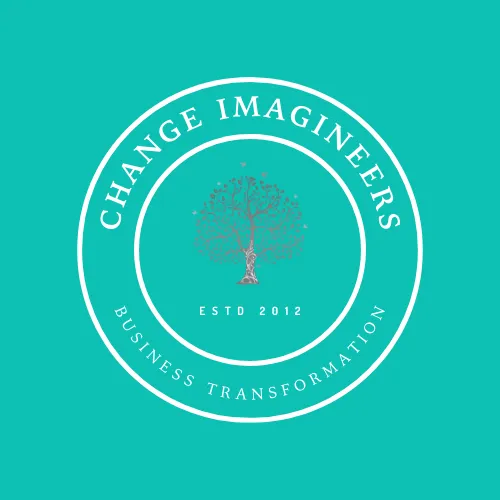Case Studies
Case Study 1: Streamlining Communication During Organisational Restructuring
Challenge:
A mid-sized tech company was undergoing a major organisational restructure, which led to confusion and anxiety amongst employees. Many of the managers, some of whom had recently been promoted without any formal training or coaching for their leadership role, struggled to communicate effectively with their teams, as they themselves were experiencing fear of the unknown in what this change would mean for the business and their roles.
Intervention:
After spending some time getting to know the org and the purpose goals and aspirations for the restructure, we conducted a series of workshops with the impacted managers and leaders, to understand their perspective, firstly on the planned change, and then on providing an awareness of the purpose of the these changes, how this will impact the business, teams and some roles, and how transparency and effective communication strategies can mitigate fear and tension amongst colleagues, creating a desire to participate in the redirection and growth of the business.
We provided one-on-one coaching to leaders and managers, with significant focus and inclusion of the new population of 'accidental managers' who needed to develop their understanding of leadership and the importance of effective communication skills, specifically during change, we also developed a series of workshops for all tiers of management to ensure that a standardised and consistent approach to understanding the principles of business change was embedded.
We helped the business to create a communication and engagement strategy, templates and a guid for managers to use in their regular team updates.
Results:
Improved clarity of the purpose and understanding of how to navigate and manage this structural change, clarity on the need for it, embedding a culture of transparency and consistency in messaging throughout the organisation to ensure that all employees are informed and, in some cases, consulted.
The business experienced increased employee morale and engagement as managers became more confident in their roles, as advocates for change. Employee sickness and attrition rates reduced by 20% during the restructuring period, proving that the desire to support this change was evident following the intervention.
Case Study 2: Improving Team Morale During a Change in Leadership
Challenge:
A well known healthcare organisation faced a significant drop in team morale, with an increase in attrition and sickness, following a sudden change in leadership. New managers, now responsible for maintaining team performance, were unprepared for the shift, feeling the pressure of newly implemented processes, protocol and targets.
There was little communication around this change which left managers and supervisors feeling unsettled and anxious about their future.
Intervention:
we worked with the business to develop a short to mid-term strategy to address attrition, with a longer term view to improving change capability across the organisation. Implementing a mentorship program that focused on pairing experienced leaders with accidental managers, helped new managers to quickly build their basic leadership skills. A longer term leadership development programme was designed to upskill leaders and managers at all levels, providing a pathway to succession planning and future-proofing.
Interactive and immersive workshops provided learning and enablement in areas like emotional intelligence, team dynamics, psychology of change and the positive benefits of continuous improvement. We provided forums and facilitated feedback sessions where team members could voice their concerns, get help with challenges and provide suggestions for improvement. These platforms enabled colleagues to feel heard, feel consulted and that their contribution to improving the culture and conditions of the workforce were valued.
Results:
Restored trust between the new leadership team, managers and their direct reports.
Providing opportunities for participation, contribution of ideas and feedback resulted in better team cohesion, understanding of the overall business objectives and purpose, providing encouraged collaboration and buy-in.
There was/is a notable increase in overall productivity and job satisfaction. We continue to support the longer term aspirations for this organisation in educating and equipping its people to become Change Leaders with a growth mindset and appetite for continued improvement.
Specific challenges faced by managers and how our guidance made a difference:
Challenge 1: Transitioning from Peer to Manager
Scenario:
A newly appointed manager in a retail company faced difficulties transitioning from being a peer to a manager, particularly in giving feedback and managing conflicts within the team.
Guidance Provided:
Conducted scenario discussions, role-play and problem solving exercises to help the manager practice navigate challenging situations and difficult conversations, providing learning, tools and frameworks on situational leadership and conflict resolution.
Offered ongoing support through mentoring ,weekly check-ins and coaching sessions.
Outcome:
The manager gained confidence and capability to approach managing conflict professionally, assertively and fairly, which Improved team dynamics, strengthened relationships and created a more positive work environment, and went on to successfully lead the team through an exceptionally challenging seasonal period, with the full support of their team, exceeding their set and aspirational targets and securing promotion within 12 months of the intervention.
Challenge 2: Leading through change with remote teams
Scenario:
After the impact of multiple lockdowns and the introduction of new working practices, a group of senior leaders in a an engineering firm were finding it challenging to manage remote teams effectively, struggling with effective engagement, accountability and trust.
Guidance Provided:
We developed a programme of learning that included Change Leadership vs Change Management, Effective Remote Leadership Best Practices, Leading with Trust and Empowering Teams. We supplemented these learning interventions with a suite of tools and techniques that could support virtual collaboration and contribution.
We also asked leaders to establish a set of expectations and performance metrics, through a consultative approach with their teams, which provided clear direction and purpose. We recommended regular virtual, and in-person where possible, coffee clubs, where non-work related chats and team-building activities could take place to maintain engagement.
Outcome:
Leaders felt more confident in their teams commitment and performance, colleagues felt a level of trust that they hadn't before, resulting in better team cohesion despite the physical distance.
With collectively agreed and measurable metrics, the business experienced an improvement in accountability and transparency, not just across the individual teams, but across the organisation as a whole, providing a culture shift at senior leader level, providing evidence that learning and continuous improvement doesn't stop at exec level, but is more important to lead the business and its people by example.
Change Imagineering...
The essence of what we do to help leaders and managers understand the complexities of change and the impact is has on their people, and ultimately the success of their business, lies in empowering them to reimagine how they approach change, whether that's a large scale transformation or small incremental changes, the principles of change remain the same, putting people at the heart of it.
Our approach provides right strategies, tools and technique to foster effective and less disruptive transitions. This includes advice, guidance, robust learning and clear communication and engagement plans that encourage a culture of resilience and adaptability. By equipping leaders with the skills to anticipate challenges and engage their teams meaningfully, organisations can ensure smoother changes that minimise disruption and maximise positive outcomes.

FAQS
What is a Business Change Imagineer?
Change Imagineers is a group of Business Transformation Consultants, the best in the industry, who approach change differently and provide specialised guidance to organisations and businesses seeking to improve their rate of success as a result of planned changes, whether a large scale transformation or small incremental changes, both can have significant impact on a business and its people if not handled in the correct way.
Research shows that over 70% of business transformations fail due to many factors, the main factor being poor understanding and planning for the impact on workforce skills and, more importantly, behaviours.
Focus of change might include performance, operational efficiencies and restructure. Consultants will help your teams to analyse current performance, systems and processes to identify areas for improvement, and provide strategic recommendations and coaching to enhance productivity, help you achieve growth objectives, and navigate challenges effectively.
As Change Imagineers, we want to empower your people to take this strategy forward as a best practice blueprint.
When should a company consider upskilling leaders & managers to help them navigate the complexities of change?
Contrary to assumptions of many business leaders, the roles of Change and Learning do not come at the end of, or even mid-way through, a transformation or change project. To ensure that effectiveness is optimised, the capability assessment and gap analysis should be positioned early, in the scoping and planning stages, to ensure that the business and its people have the capability, and willingness, to embark on navigating the complexities of transformational change.
Typically, the gaps are evident from the start with a population called 'the accidental manager', but can also be present amongst senior leaders if such significant changes have never before been experienced. Companies should consider hiring a business transformation consultant to help guide and coach their people, after all, the focus is on people, adopting these changes to become business as usual for sustained successful outcomes.
Consultants are especially valuable when a business encounters challenges that require specialised expertise, or a 'reframe' when a project loses traction, during periods of transition, such as entering new markets, undergoing organisational restructuring, or addressing declining performance.
How does a Business Change Imagineer tailor their approach to each client's needs?
Business Transformation Consultants tailor their approach by first gaining a deep understanding of the client's industry, their business model, strategic goals, growth aspirations and challenges. They collaborate closely with the client's leadership team to help assess existing processes and systems, gather insights and identify pain points.
With this information, and understanding of the current state, consultants can help the client to develop customised strategies and action plans that align with their unique needs and strategic priorities, ensuring that a bespoke solution addresses specific challenges and identifies opportunities to maximise return on investment.

